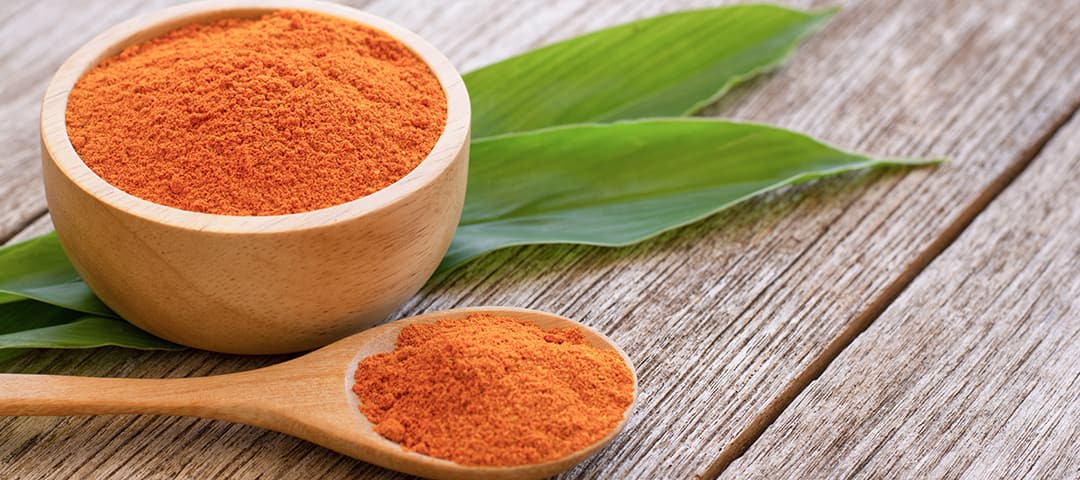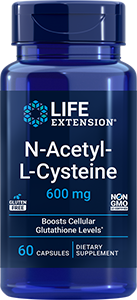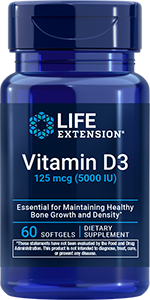
Newsletter
Newsletter
Review of Clinical Studies Suggests Using Curcumin for Weight Management

An updated meta-analysis of 50 clinical trials found that curcumin, a compound that occurs in the “golden spice” turmeric, offers weight management benefits.1
Trial participants who received curcumin experienced a significant reduction in body mass index (BMI), body weight and waist circumference compared with control groups. Bioavailable forms of curcumin that are easier for the body to use showed the greatest benefit.
The study examined fourteen systematic reviews and meta-analyses which included a total of 39 randomized, controlled trials, plus an additional 11 new trials. Different types of curcumin evaluated in the trials included whole turmeric, curcumin extracts or bioavailability-enhanced formulas.
The article was published in the May 2023 issue of the American Journal of Clinical Nutrition. As the authors pointed out, weight management isn’t the only benefit of turmeric extract. “Turmeric, or Curcuma longa, is a member of the ginger family cultivated in Asian countries, and it is one of the most common herbs used as a culinary ingredient or dietary intake,” they remarked. “It has been used as a traditional medicine for centuries in Asia because of its antioxidant, anti-inflammatory, anticarcinogenic, antidiabetic, and antihyperlipidemia properties.”
Products
Apply What You’ve Learned: Curcumin
- Curcuminoids are a family of compounds extracted from the turmeric root, a spice used in Indian and other cuisines. Turmeric has been used as an herbal medicine in Asia for thousands of years.2 Curcumin makes up the majority of curcuminoids in turmeric.3
- Curcumin’s health benefits go beyond weight management. The compound has been used in diabetes, arthritis, cardiovascular disease, kidney disease and liver disease. It has also been studied in brain-related conditions including Alzheimer’s disease, amyotrophic lateral sclerosis (ALS), anxiety, autism, depression, Down syndrome, Huntington’s disease, multiple sclerosis, Parkinson’s disease, prion disease and stroke.4
- Curcumin’s ability to support a healthy inflammatory response and to fight oxidative stress may be why it benefits many health concerns and disorders.5
- Curcuminoids, the most important of the benefit-packed compounds in turmeric, have poor bioavailability in their normal state. Combining turmeric extract with fenugreek fiber has been found to increase free curcuminoids’ bioavailability 45.5-fold when compared to unformulated standard curcumin.6
References
- Unhapipatpong C et al. Am J Clin Nutr. 2023 May;117(5):1005-1016.
- Akaberi M et al. Adv Exp Med Biol. 2021;1291:15-39.
- Lee WH et al. Curr Neuropharmacol. 2013 Jul;11(4):338-78.
- Bhat A et al. Biofactors. 2019 Sep;45(5):666-689.
- He Y et al. Molecules. 2015 May 20;20(5):9183-213.
- Kumar D et al. J Funct Foods. 2016;22:578-587.
Featured Life Extension Magazine® Article
Senescent Cells and Brain Aging
By Brian Scott
Senescent cells are aged cells that, rather than dying, can become dysfunctional and damage the tissue around them. New research indicates that senescent cells in the brain are involved in the development of cognitive impairment, including Alzheimer’s and Parkinson’s disease.
Senolytics are compounds that help remove senescent cells in the body. In a mouse model of Alzheimer’s disease, the senolytic compounds quercetin and dasatinib (a drug that treats cancer) eliminated senescent cells in the brain while lowering inflammation, reducing amyloid-beta deposits that characterize Alzheimer’s disease and improving cognitive function. Theaflavins from black tea have been found to have a senolytic action similar to that of dasatinib.
Read Full Article
What's Hot
Health Concern
Meta-Analysis Affirms Weight Management Benefit for Chili Pepper Compound
A systematic review and meta-analysis published on March 20, 2023, in the British Journal of Nutrition supported a benefit for capsaicin, a compound derived from chili peppers, in weight management.

Weight Management
One key weight loss strategy is to support a healthy rate of carbohydrate digestion and absorption by targeting enzymes in the digestive tract.
Related Life Extension Magazine® Articles

Longevity Effects of Curcumin
Research shows multiple longevity properties of curcumin.

Curcumin for the Brain
Curcumin helps form new neurons and protect memory. New data demonstrate how curcumin can penetrate the blood-brain barrier.
Life Extension Magazine® Issue Now Online
A remarkable number of healthy-longevity findings have been published over the past 18 months.





